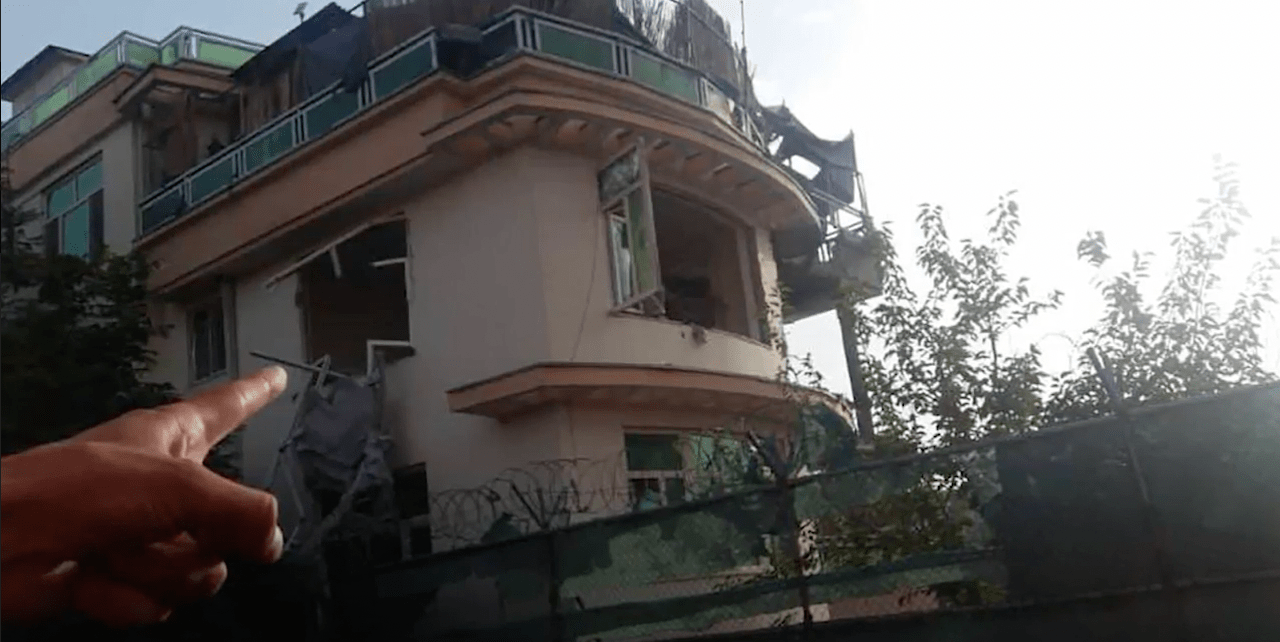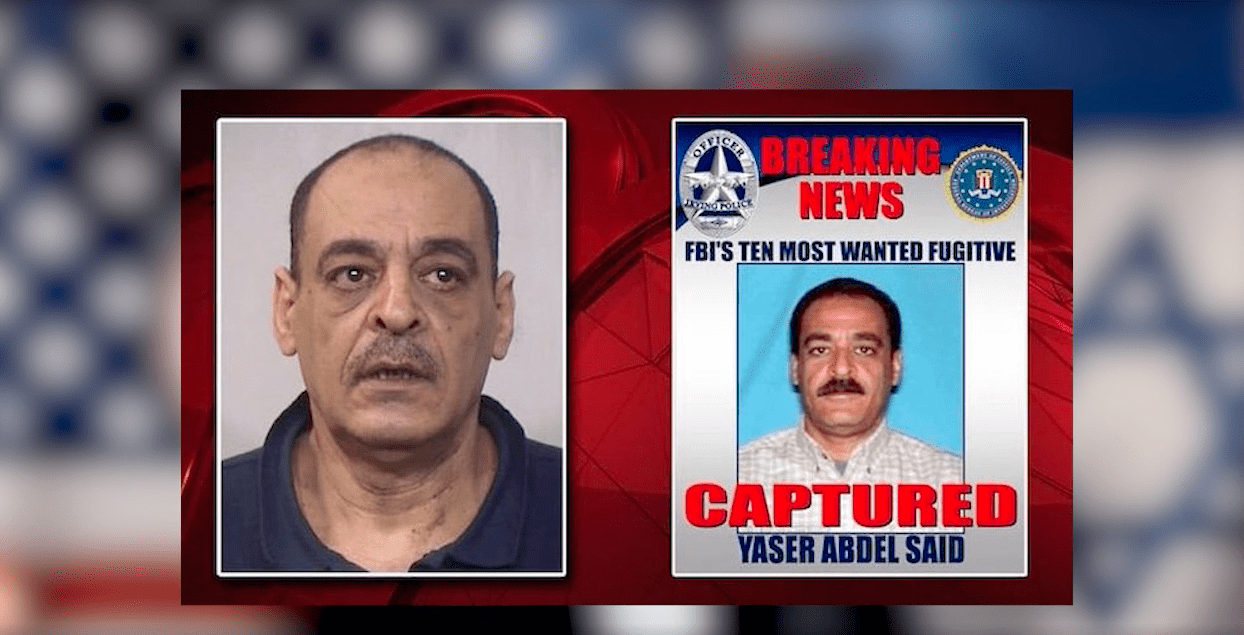Radical Islam
Robert Spencer: My New Book Proves That Muhammad Probably Never Existed!
Barry Nussbaum: Hello and welcome to ATP Report. I’m Barry Nussbaum. We have a special guest today, a friend of ATP and the scholar on the subject we’re going to interview him on. But before we bring him on, I want to remind everybody out there on ATP land, if you haven’t yet, please take out your cell phone and text the word TRUTH in the message box and in the address up above, send it to the number 88202 and you’ll be signed up instantly for our text message alert system.
You’ll get this and all of our shows absolutely free on your cell phone. Every time we release something, including this guy who I’m going to bring on now. Robert Spencer, the founder of Jihad Watch, is a Shillman Fellow at the David Horowitz Freedom Center, the author of twenty-three books, and a big-time book out now that we’re going to talk about today. Welcome, Robert.
Robert Spencer: Thank you, Barry. Good to talk to you again.
Barry Nussbaum: So real quick before I start, tell everybody the name of your new book, and I’ve got questions for you from that book.
Robert Spencer: The name of the book is Did Mohammed Exist? An Inquiry into Islam’s Obscure Origins. This is a revised and expanded edition with a great deal of new material in it. And, well, I appreciate your interest in any case.
Barry Nussbaum: Well, as we talked about before, and when we were rolling today, this is earth-shaking stuff. And let’s start with one of the big things you’ve come up with in the book, that there’s evidence that the Quran was not actually collected and distributed in the year 653, as Islam teaches. But parts of it existed as separate books that were culminated, collected, I should say, 50 years later from different sources. Did I read that right?
Robert Spencer: Yeah, you’re absolutely right. It’s very strange because it’s a staple of Islamic apologetics in the case that they make in the West to non-Muslims, that the Quran has always been preserved perfectly, and that it has was put in its present form by the Caliph Uthman in the year 653.
And the funny thing is, though, if you look back at the records that are available of people writing and speaking about the Arab conquerors in the 650s and the 660s and 670s and 680s and 690s, you don’t find any mention of a new holy book. And so, it’s very strange. What we’re supposed to believe, apparently, is that Uthman got together all the people who had memorized parts of the Quran. He codified the text and burned the variants and distributed the Quran to all the provinces. And then nobody mentioned it.
Nobody referred to its existence. Nobody quoted it. Nobody said that it was there. Nothing, for another 50 years. We’re also further supposed to believe that by the year 730 or so, 80 years after Uthman, you have John of Damascus, the Christian writer, writing about Islam and about the Quran. And he says, ‘I’ve read your books. I’ve read the Quran. I’ve read Sahih al-Bukhari.’
Now, Sahih al-Bukhari is the second chapter of the Quran. So why does he refer to it as separate? You don’t refer to-you don’t say, ‘I’ve read this book, and I’ve also read Chapter 8 of it.’ You know, it doesn’t make any sense. The only way it makes sense is if Sahih al-Bukhari was part of a separate book at that time. There’s also an anonymous writer from around the same period who refers to it in the same way as if it’s a separate book.
The only likely explanation of that is that it was a separate book at that time. Also, there’s a very strange tradition of the Caliph Abd al-Malik, who was the leader of the Muslims from the year 685-705, and he says, ‘I’m afraid I’m going to die during Ramadan because I was born during Ramadan. I became Caliph during Ramadan, and I collected the Quran during Ramadan.’
Now, if he collected the Quran, the Uthman didn’t. If Uthman collected the Quran, then Abd al-Malik didn’t. Now, if Uthman collected the Quran, there would be no reason for Abd al-Malik to claim that he did. But if Abd al-Malik collected the Quran, it’s very easy to believe that to give it an air of antiquity and authenticity, he attributed the work to Uthman rather than say this is this new thing we’ve just cooked up.
Barry Nussbaum: Sounds better to sell it. So, when you look at the 7th-century Arab conquerors, according to Islamic tradition, as I understand it, they were all supposed to have been Muslims by then, but they didn’t call themselves Muslims, and they never used the word so, which is true?
Robert Spencer: We will say this is another problem with the standard narrative. According to Islamic tradition, any Islamic scholar you want to go and ask today would say Mohammed died in 632. That Muslims were energized by his words about waging war against unbelievers and so on. Of course, a lot of Islamic scholars like to pretend those words don’t exist. Others will acknowledge they exist and say that’s why they went out and conquered North Africa, the Middle East, and so on.
But actually, the records of the time here, again, you go back to the 7th century, nobody’s calling them Muslims. And there are people who write a great deal about the conquerors, about what happened and speak to the conquerors and talk to them about why they’re doing what they’re doing. And they never call themselves Muslims. They’re never called Muslims. They never say they have a new religion. Nobody gets the idea they have a new religion or a new prophet, or a new holy book.
Barry Nussbaum: Well, there’s another thing that strikes me as rather interesting. All of us know today, Robert, that Muslims, when they do their frequent daily prayers, face Mecca from wherever they are in the world, but that was not originally part of the religion. In fact, the practice of praying towards Mecca didn’t even exist when mosques were being built. So somewhere along the line, somebody added to the religion. Is that correct?
Robert Spencer: Yeah, it’s very strange. This is yet another indication that the standard story doesn’t make any sense. Because in the Quran, it says the Muslims were praying toward Jerusalem, and then Allah gives them a different Qibla. That is the direction for prayer. And that’s Mecca. And this is in Chapter 2 of the Quran. And so, it’s supposed to be recorded right then within Muhammad’s lifetime, that Muslims are praying toward Mecca.
And yet we have in the world today mosques that were built in the 630s, 640s, 650s, the first few decades, supposedly after Mohammed supposedly died in the year 632. And so, all of these mosques should have the direction of prayer toward Mecca. And so, one of the new things that are in the new edition of Did Mohammed Exist? I discussed the findings of a scholar named Dan Gibson, who actually visited these early 7th century mosques and measured which way they point.
That is, where their Qibla is. What direction they’re facing for prayer. And he finds that the great majority of the earliest mosques face Petra, a city in southern Jordan, which is northwest of Mecca. Well, in any case, north of Mecca, I don’t remember right now if it’s northeast or northwest of Mecca, but it’s north of Mecca. So that- and far enough away that there’s no way that you can say, well, they meant to be facing Mecca, but they’re facing Petra. Especially when you have mosques that are close by in Egypt and places like that where they’re very clearly facing Petra and not Mecca.
So, this indicates that at some point, the direction for prayer was changed. But this has no record in the Islamic texts, which have been written later to give the impression that it had always been Mecca from Mohammed’s time and before that, Jerusalem. And there’s no mention of Petra at all. The only record of Petra comes from the record of the mosques themselves, which is enough to refute the standard traditional account.
Barry Nussbaum: Real quick question for my personal edification, as someone who has been on the Temple Mount in Jerusalem and been in the Islamic holy sites there, Dome of the Rock. Is it true there’s no mention of Jerusalem, which had existed for 1,500 years by the time Mohammed came around? There’s no mention in any of the Quran of the place called Jerusalem?
Robert Spencer: Yeah, no mention by name of Jerusalem. There is one mention in chapter 17, Verse 1, which is taken to be referring to Jerusalem, but there’s no reason why that necessarily is so. The verse in question says that Allah took Mohammed, took the prophet, took the messenger, doesn’t mention him by name as I recall. Maybe.
There are four mentions of Mohammed in the Quran. I don’t remember if that’s one of them or not right now, but in any case, it takes the messenger from the sacred mosque to the farthest mosque. The farthest mosque in Arabic is Al-Aqsa, and so Muslims to this day, say, well, see the Al-Aqsa Mosque. It’s right there on the Temple Mount.
That’s where Mohammed was miraculously transported. However, even by the standard account, that doesn’t make sense because the Al-Aqsa Mosque was built in the 690s, and Mohammed is supposed to have died in 632. So, what’s much more likely is that if that refers to the Al-Aqsa Mosque in Jerusalem, it was written much later. After Mohammed.
Barry Nussbaum: And some years ago, when I was there, I had a very high-ranking Islamic tour guide who led me everywhere. This was in the days where a Jew could be there without armed guards with him. This is going on twenty-five years ago. And he said to me, ‘This is where Mohammed walked. This is where Mohammed was.’ And he went on and on and on about how this place had been blessed by Mohammed when historically, as you’re saying, Robert, he was never there. And there’s no mention of him there. This is a new narrative. But that what they’re telling everybody, including me.
Robert Spencer: It comes from the Hadith. It comes from the traditions of Muhammad that are written in the 800s. So that’s 200 years after Mohammed is supposed to have lived. We get this very detailed story about a winged white horse with a human head. It’s called the Buraq, not Barack Obama, the Buraq.
And it rode Mohammed to Jerusalem, where at the Temple Mount he ascends into paradise and meets the prophets and meets Allah. That’s the story. Even in Islamic tradition, this is just a dream because Aisha Mohammed’s favorite wife, the famous child bride, says, ‘He was here sleeping beside me the whole time.’ This is in the Islamic story. So, it’s not even presented as a historical incident.
And that is the sole basis for the Islamic claim to Jerusalem. If the Al-Aqsa Mosque in the Quran does not refer to Jerusalem, which is likely, it only refers to where the farthest mosque is, which is what Al-Aqsa means. That could have been anywhere. Farthest from what?
Barry Nussbaum: I get it. So, you mentioned Aisha, now there’s, what, a relative of Aisha who is a source for lots of this story that became Islamic tradition but is not a reliable source. What do you mean by that?
Robert Spencer: Yeah, you know, that’s Urwah Ibn Zubayr. It’s interesting that if you go to the Hadith collections, the ones that Muslims consider most reliable, that is Bukhari Muslim, Abu Daoud, and so on, you go to them, and you’ll find a lot of the traditions are attributed to Aisha or attributed to Urwah.
And that is that it’s really on their authority that they are being presented as authentic. Now, there are scholars today, who take this seriously, and Gregor Schoeler is an Islamic scholar who actually wrote. I discussed him in my book. About how it’s very exciting that we have these traditions from Urwah Ibn Zubayr because he was Aisha’s nephew. And so, he probably sat at his aunt’s feet and heard her tell stories about Mohammed and early Islam. Okay. Then, here again, this is a big sleight of hand.
This is a big trick on the part of Islamic tradition because we don’t know anything about what Urwah Ibn Zubayr said, except in 9th-century material. It doesn’t come from 30, 40 years after Mohammed as if it were a contemporary record written down by Aisha’s nephew. It comes from 200 years later when somebody says this comes from Aisha’s nephew. Well, that’s great. I happen to have a letter right here that Thomas Jefferson’s nephew wrote me. I guarantee you, Barry, that it’s authentic.
Barry Nussbaum: And keep in mind, 200 years in those days is a multitude of generations because people didn’t live 70 and 80 years. They sometimes live 30 years. So, one century might be three generations. Three centuries might be ten generations. And there wasn’t a lot of stuff written down. It was oral, traditionally passed down-my goodness, how the story could have changed.
Robert Spencer: Yeah. And that’s another thing that people say, ‘Well, see. It’s an oral tradition. You’re looking for written records. And this was an oral culture.’ Great, okay. Okay. I know that there are tremendous feats of memory that people have demonstrated. Like, for example, Homer’s Odyssey in Iliad. We have manuscripts of them, as far as I recall, from the 800 A.D., which is probably over a thousand years after Homer.
And so, there’s in the first place, it’s possible that there’s a whole lot of elaboration, but it’s also likely that people were memorizing this material and repeating it. That’s great. There are several problems, however. One is that in the case of Homer, as in the case of Islam and Mohammed, there’s every possibility that somebody might not have total recall.
That while there may be Homer’s Odyssey and the text is fixed in this tradition, there might be some other copy somewhere else where some of the words are changed. This is only to be expected because you’re dealing with human memory. In the case of Islam, you have, not only do we have to believe that all these people who transmitted these traditions had absolutely total recall, perfect recollection of everything that happened, but also the authenticity of various traditions of Mohammed is established on the basis of the chain of transmitters, that is Aisha told Urwah, told so-and-so, told so-and-so, told so-and-so.
And if all those people are considered to be reliable and trustworthy, then the 9th century Hadith scholars considered it to be an authentic tradition. But they were dealing; they themselves admitted that thousands, tens of thousands of the stories of Muhammad have been forged for various purposes. That people of a certain group would forge a story of Mohammed to support their view.
And then, the other group would make a story of Mohammed to support their view and so on. Okay, so if you can forge a story of Mohammed, you’re telling me you can’t forge a chain of transmitters that are full of reliable people? And also, the earliest traditions don’t have a chain of transmitters.
So, the whole thing. There may be some historically accurate material in it, but there is no way for us to tell what it is, and there’s so much room for legendary elaboration that none of it ultimately can be considered trustworthy.
Barry Nussbaum: Robert, these are groundbreaking claims; I mean, earth-shattering. Move the earth kind of claims. Where can people find out more about your work?
Robert Spencer: Well, I’m a Jihad watch.org. And at JihadWatchrs on Twitter and there’s a Jihad website on Facebook, the books are available at Amazon and Barnes and Noble, all this may not be true tomorrow, Barry, because the Global Institute for Counterterrorism or whatever it’s called, has which is run by Facebook, Microsoft, YouTube, Twitter, they’ve decided they’ve classified me as a violent extremist, which is plain libel. But in any case, I could be gone tomorrow. Get the books today.
Barry Nussbaum: Well, you don’t look that violent to me if anyone cares about my opinion. So, I appreciate you coming on today. And I, as I said, this is groundbreaking stuff. I want to remind our viewers if you haven’t done it yet, subscribe now. You’ll get all of Robert Spencer on ATP in the palm of your hand. Absolutely for free. All you have to do is text the word TRUTH to 88202. For ATP Report, thanks for joining us today. I’m Barry Nussbaum.











